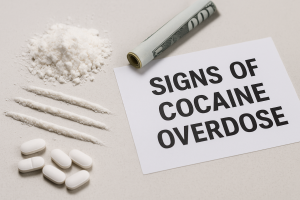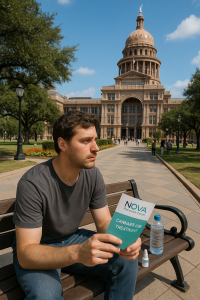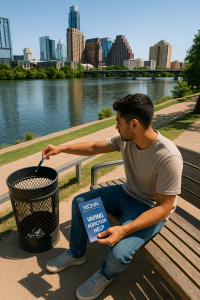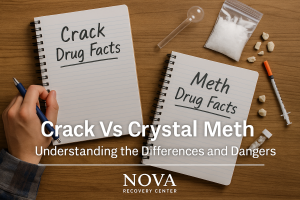
Bipolar and Addiction: What the Link Really Means—and How to Get Effective Help
Table of Contents At a Glance: Bipolar and Addiction How common is the overlap between bipolar disorder and addiction? Research shows that between 22% and

Table of Contents At a Glance: Bipolar and Addiction How common is the overlap between bipolar disorder and addiction? Research shows that between 22% and

Table of Contents September 15–21 is Week 3 of Recovery Month 2025, and this week’s theme shines a light on something at the heart of

Table of Contents Cocaine is a powerful stimulant that affects the brain and body almost immediately after use. While some may underestimate its dangers, the

Table of Contents Stoned eyes are one of the most recognizable signs of marijuana use. The term refers to the appearance of red, bloodshot,

Nicotine-free vapes are often seen as a safer option, but they can still expose users to harmful chemicals and long-term health problems. Discover the risks, explore safe alternatives to smoking, and find out how Nova Recovery Center can help—now available in Austin, Houston, San Antonio, and Colorado Springs.

Crack and crystal meth are powerful stimulants with serious health risks, from intense cravings and mood swings to long-term damage. This guide explains the key differences, side effects, and withdrawal symptoms—plus how Nova Recovery Center’s programs across Texas and Colorado can support lasting recovery.